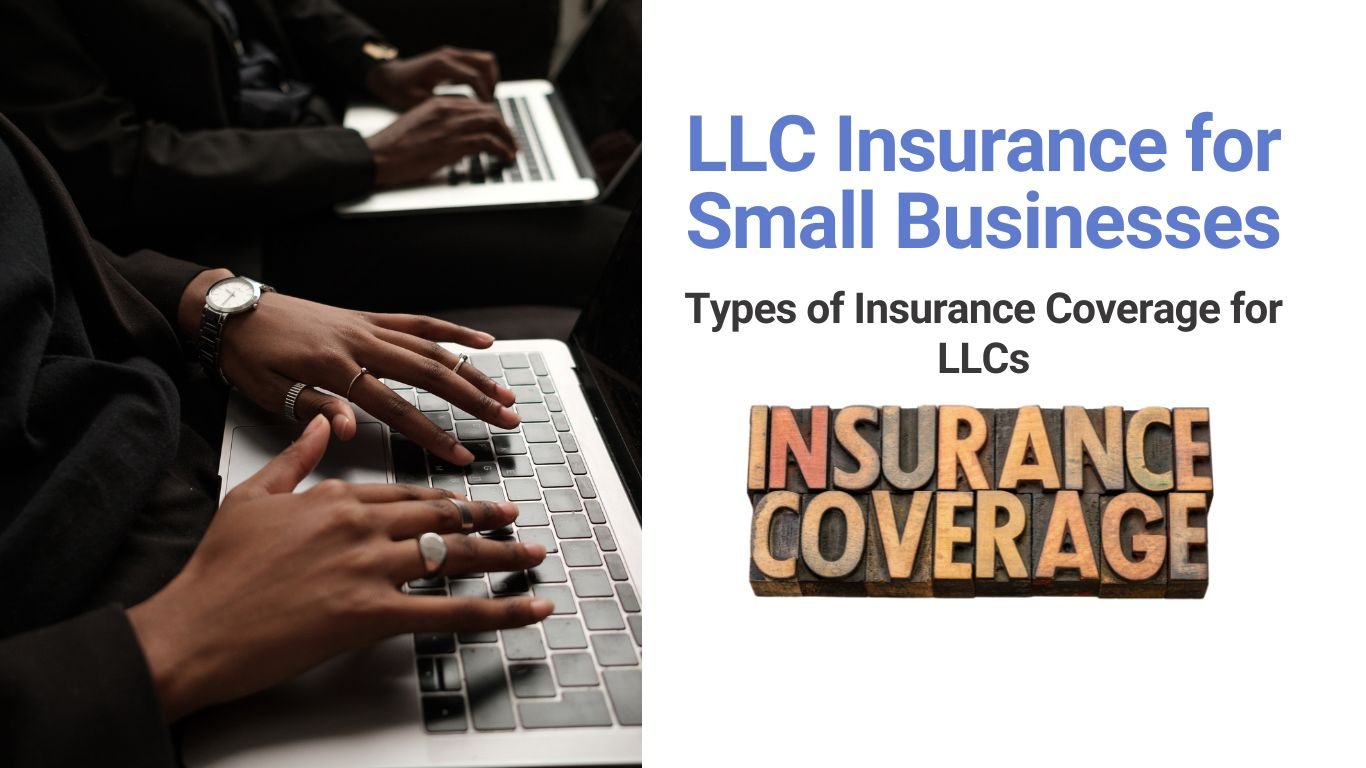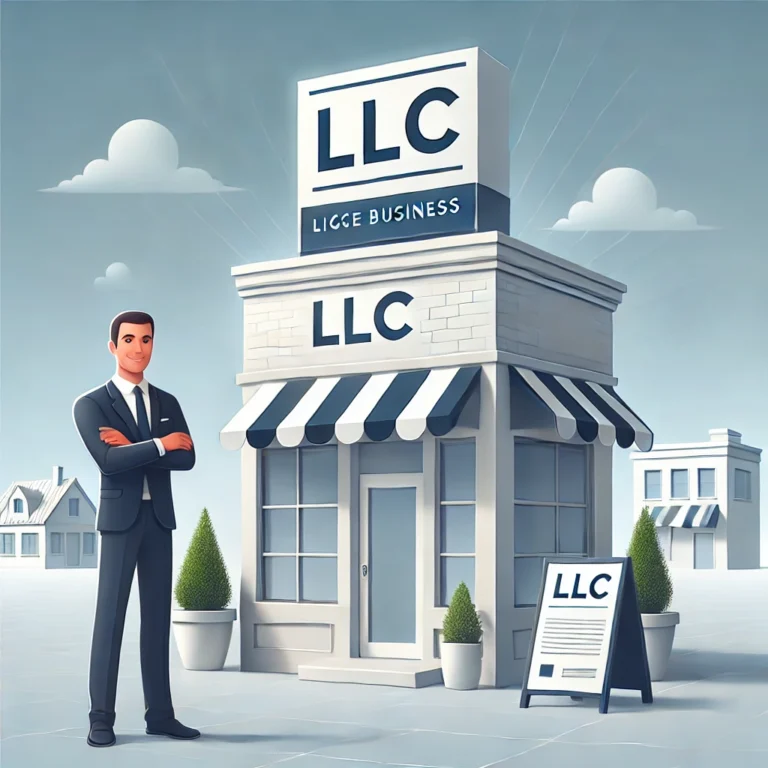Comprehensive Guide to LLC Insurance for Small Businesses
Table of Contents
Introduction to LLC Insurance for Small Businesses
Limited Liability Company (LLC) insurance is a critical component for safeguarding small businesses against potential financial risks. As small business owners navigate the complexities of daily operations, they must recognize the importance of securing insurance tailored to their specific needs. LLC insurance for small businesses encompasses a range of coverage options designed to protect against various liabilities and unforeseen circumstances that could otherwise jeopardize the stability and growth of the enterprise.
Small business insurance for LLCs primarily aims to shield business owners from personal liability. This means that if the business faces a lawsuit or incurs debt, the owner’s personal assets are generally protected. This delineation between personal and business assets is one of the core benefits of forming an LLC. However, the protection doesn’t end there. LLC insurance also covers a broad spectrum of risks, including property damage, legal claims, workplace injuries, and professional errors or omissions.
For small businesses, the need for comprehensive insurance coverage cannot be overstated. These enterprises often operate on tighter budgets and with fewer resources compared to larger corporations, making them particularly vulnerable to financial disruptions. Insurance for small business LLCs helps mitigate these risks, ensuring that a single incident doesn’t lead to catastrophic financial loss. Whether it’s damage to the business premises, a customer injury on-site, or an employee’s claim of wrongful termination, having the right insurance can make a significant difference in the business’s ability to recover and continue operations.
In addition to liability protection, small business LLC insurance can also offer peace of mind to business owners. Knowing that there is a safety net in place allows entrepreneurs to focus on growing their business, rather than worrying about potential legal and financial pitfalls. By understanding the fundamentals of LLC insurance and recognizing its importance, small business owners can make informed decisions to protect their ventures effectively.
Types of Insurance Coverage for LLCs
When it comes to securing the right insurance for small business LLCs, understanding the various types of coverage available is crucial. Each type of insurance offers unique protections, catering to different aspects of your business operations. Below, we explore four essential insurance policies: general liability insurance, professional liability insurance, commercial property insurance, and workers’ compensation insurance.
General Liability Insurance
General liability insurance is fundamental for any small business LLC. This policy covers legal costs and damages if your business is held liable for bodily injuries or property damage to third parties. For example, if a customer slips and falls in your store, resulting in medical expenses and legal fees, general liability insurance would cover these costs. This type of insurance also protects against advertising injuries, such as slander or copyright infringement claims.
Professional Liability Insurance
Also known as errors and omissions (E&O) insurance, professional liability insurance is essential for LLCs offering professional services or advice. This policy protects against claims of negligence, mistakes, or omissions in the services provided. For instance, if a client alleges that your consultancy advice led to financial loss, professional liability insurance would cover the legal defense and any potential settlements. This coverage is particularly important for businesses in fields like consulting, accounting, or legal services.
Commercial Property Insurance
Commercial property insurance safeguards your LLC’s physical assets, including buildings, equipment, inventory, and furniture. This coverage is vital in the event of damage or loss due to fire, theft, vandalism, or natural disasters. For example, if a fire damages your office equipment, commercial property insurance would cover the repair or replacement costs, ensuring your business can quickly resume operations. This insurance is crucial for businesses with significant physical assets.
Workers’ Compensation Insurance
Workers’ compensation insurance is mandatory in most states for businesses with employees. This policy covers medical expenses, lost wages, and rehabilitation costs if an employee is injured or becomes ill due to their job. For example, if an employee sustains an injury while operating machinery, workers’ compensation insurance would cover their medical bills and provide wage replacement during their recovery. This coverage not only protects employees but also shields the business from potential lawsuits related to workplace injuries.
By understanding and obtaining the appropriate insurance for your small business LLC, you can effectively mitigate risks and safeguard your business’s financial health. Each type of insurance plays a specific role in providing comprehensive coverage for various scenarios, ensuring your LLC remains protected against unforeseen events.
Benefits of Having Insurance for Your Small Business LLC
Insurance is a pivotal aspect for any small business LLC, offering a multitude of benefits that go beyond mere financial protection. One of the primary advantages is the safeguarding of personal assets. By having small business insurance for an LLC, business owners can ensure that their personal properties, like homes and savings, are shielded from business liabilities and lawsuits. This separation of personal and business assets is crucial in maintaining financial stability and personal peace of mind.
Another significant benefit is ensuring business continuity. Unexpected events such as natural disasters, theft, or lawsuits can severely disrupt business operations. However, with proper insurance for a small business LLC, these potential risks are mitigated, allowing the business to continue its operations with minimal interruptions. This continuity is vital to sustaining revenue streams and maintaining client relationships.
Moreover, having small business LLC insurance can enhance the credibility of the business with clients and partners. In many industries, clients prefer or even require that the businesses they work with are insured. This assurance of protection can foster trust and confidence, making it easier to secure contracts and partnerships. Insurance demonstrates a commitment to professionalism and responsibility, which can be a significant competitive advantage.
Finally, possessing LLC insurance for a small business provides invaluable peace of mind. Entrepreneurs often face numerous uncertainties and challenges, and worrying about potential risks can be a significant source of stress. Knowing that the business is protected against various contingencies allows owners to focus more on growth and innovation rather than on potential setbacks. This peace of mind can enhance decision-making and overall business performance.
How to Assess Your LLC’s Insurance Needs
Evaluating your LLC’s insurance needs is a crucial step in safeguarding your business. By understanding the specific requirements of your business, you can determine the right type and amount of insurance coverage. Several factors come into play when assessing your insurance needs, including the industry you operate in, the size of your business, the number of employees, and the potential risks involved.
Firstly, consider the industry you are a part of. Different industries have varying levels of risk. For instance, a construction business may face higher risks compared to a consultancy firm. Therefore, the type of small business insurance for LLCs will differ accordingly. Research common risks associated with your industry to ensure comprehensive coverage.
Secondly, the size of your business is another critical factor. Small businesses with fewer employees may require different coverage compared to larger enterprises. Assess the scale of your operations and the value of your assets to determine the appropriate insurance for your small business LLC. This includes considering property insurance, liability coverage, and even business interruption insurance.
The number of employees also influences your insurance needs. With more employees, the need for workers’ compensation insurance becomes more significant. This insurance type covers medical expenses and lost wages if an employee gets injured on the job, providing essential protection for both the employer and employees.
Lastly, identify the potential risks your business may face. These risks can range from natural disasters and theft to lawsuits and cyber-attacks. Conduct a thorough risk assessment to ascertain which insurance policies are necessary to mitigate these risks. This will help in selecting the best LLC insurance for small businesses that caters to your unique risk profile.
To streamline the assessment process, create a checklist that includes the following steps:
- Identify industry-specific risks
- Evaluate the size and scale of your business
- Consider the number of employees and their roles
- Conduct a comprehensive risk assessment
By carefully evaluating these factors, you can make informed decisions and secure the most suitable insurance coverage for your small business LLC, ensuring long-term protection and peace of mind.
Choosing the Right Insurance Provider
When selecting an insurance provider for your small business LLC, it is crucial to consider several factors to ensure you make an informed decision. One of the foremost considerations is the provider’s experience with small businesses. An insurance company that has a proven track record with small business insurance for LLCs will be more likely to understand the unique needs and challenges that come with operating a small enterprise. This expertise can translate into more tailored and effective coverage options.
Customer service quality is another critical factor. Efficient and responsive customer service can significantly impact your experience, especially when you need to file a claim or make adjustments to your policy. Look for providers that offer comprehensive customer support, including easy access to agents and a user-friendly online portal for managing your insurance needs.
Policy options are equally important. A reputable provider should offer a range of insurance products that cater to different aspects of your business operations. This includes general liability insurance, professional liability insurance, and property insurance, among others. The ability to bundle multiple policies can often result in cost savings and more comprehensive coverage for your small business LLC.
Pricing is always a consideration, but it should not be the sole deciding factor. While it is essential to find a policy that fits within your budget, the cheapest option may not always provide the best coverage. Comparing quotes from multiple providers can help you find a balance between cost and coverage. Be sure to examine what is included in each policy and understand any potential exclusions or limitations.
Reading reviews and testimonials from other small business owners can provide valuable insights into the reliability and performance of a prospective insurance provider. Online reviews can highlight both the strengths and weaknesses of a company’s offerings, helping you make a more informed decision.
In summary, choosing the right insurance provider for your small business LLC involves careful evaluation of their experience, customer service, policy options, and pricing. By taking the time to compare different providers and read reviews, you can secure the most suitable and effective insurance coverage for your business needs.
Cost of LLC Insurance for Small Businesses
The cost of LLC insurance for small businesses can vary significantly based on several factors. One of the primary determinants is the type of coverage required. For instance, general liability insurance, which protects against common risks such as customer injuries or property damage, tends to be less expensive than specialized coverage like professional liability insurance, which is tailored to specific industry risks. Business owners must assess their unique needs to choose the appropriate coverage.
Another critical factor influencing the cost is the business location. Insurance providers often consider the geographical area when setting premiums because certain locations may present higher risks. For example, businesses located in regions prone to natural disasters may face higher rates due to the increased likelihood of claims. Similarly, urban areas with higher crime rates can also lead to elevated insurance costs.
Industry-specific risks play a substantial role in determining the cost of insurance for a small business LLC. High-risk industries, such as construction or manufacturing, generally face steeper premiums compared to lower-risk sectors like consulting or retail. Insurers evaluate the potential hazards associated with each industry to calculate the appropriate coverage costs.
The size of the business is another influential factor. Smaller businesses with fewer employees and lower annual revenue typically pay less for insurance compared to larger enterprises with higher operational complexities. However, it is essential for small business owners to ensure that they have adequate coverage despite the cost, as underinsurance can lead to significant financial losses in the event of a claim.
On average, small business LLC insurance costs can range from $500 to $2,000 per year, depending on the aforementioned factors. To find affordable insurance without compromising on coverage, business owners should consider comparing quotes from multiple providers, bundling different types of insurance policies, and working with an insurance broker who specializes in small business needs.
Common Mistakes to Avoid When Buying LLC Insurance
When procuring small business insurance for an LLC, many entrepreneurs fall into common traps that can lead to inadequate coverage and financial strain. One of the most frequent mistakes is underestimating coverage needs. Small business owners often opt for minimal coverage to save on premiums, only to find themselves inadequately protected in the event of a claim. It’s crucial to accurately assess the risks associated with your business operations and ensure that your policy provides comprehensive protection.
Another common error is not reading policy details thoroughly. Insurance contracts can be complex and laden with jargon, leading business owners to overlook critical exclusions and conditions. It’s essential to scrutinize every aspect of your insurance policy, including the fine print, to fully understand what is and isn’t covered. Seeking clarification from an insurance advisor can also prevent costly misunderstandings.
Neglecting to update policies as the business grows is another pitfall. As your business evolves, so do its risks and coverage needs. Regularly reviewing and updating your LLC insurance for small business can ensure that your coverage remains appropriate. Significant changes such as expansion, new product lines, or increased revenue should prompt a policy review to safeguard your growing business adequately.
Lastly, choosing price over quality can be a detrimental mistake. While it’s understandable to manage expenses, opting for the cheapest policy can result in subpar coverage. It’s important to balance cost with the quality of coverage to ensure that your small business LLC insurance provides adequate protection. Compare policies not just on price but also on the comprehensiveness of coverage, reputation of the insurer, and their claims process.
By avoiding these common mistakes—underestimating coverage needs, neglecting policy details, failing to update insurance as your business grows, and prioritizing cost over quality—you can make informed decisions that will protect your LLC and contribute to its long-term success.
Maintaining and Reviewing Your LLC Insurance Policy
Ensuring your small business insurance for LLC remains effective involves regular maintenance and periodic reviews. As your business grows and circumstances change, it is essential to keep your insurance policy updated to reflect these developments accurately. A well-maintained insurance for small business LLC can safeguard your enterprise from potential risks and financial setbacks.
One of the key aspects of maintaining your small business LLC insurance is to conduct an annual review of your policy. This review should assess whether your coverage limits are still adequate and if the types of coverage included are still relevant to your business operations. Changes in business activities, the addition of new services, or even changes in the number of employees can all necessitate adjustments to your LLC insurance for small business. Keeping your insurer informed about these changes can help avoid any gaps in coverage.
Regularly updating your policy is crucial for continuous protection. For instance, if your business acquires new equipment, relocates to a different premises, or enters into new contractual obligations, these changes should be communicated to your insurance provider. Failing to update your policy to reflect such changes can result in insufficient coverage, leaving your business vulnerable to unforeseen liabilities.
Additionally, maintaining meticulous records of your insurance policy and all related documents is vital. This includes keeping track of premium payments, policy renewal dates, and any correspondence with your insurer. Such documentation can be crucial if you need to file a claim, ensuring you have all necessary information readily available.
When it comes to filing claims, understanding the process is essential. Promptly report any incidents or losses to your insurance provider and provide all required documentation to support your claim. Working closely with your insurer can expedite the claims process and ensure a smoother resolution.
By proactively managing and regularly reviewing your small business insurance for LLC, you can ensure that your business remains adequately protected as it evolves. A well-maintained insurance policy not only provides peace of mind but also forms a crucial part of your overall risk management strategy.








2 Comments